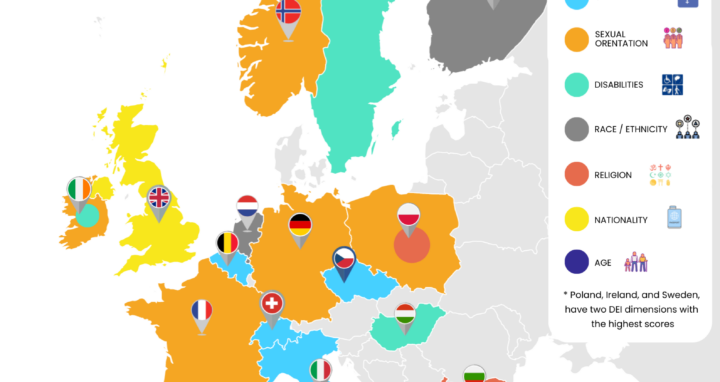The 2018 Worldcom Confidence Index report is here and is full of unparalleled insight into the current global business environment. The report commissioned two independent research companies and sourced 585 CEOs and CMOs from six of the G7 countries: France, Germany, Italy, Japan, UK, USA – as well as China.
PR professionals and thought leaders need these insights to prepare their organizations for potential setbacks and barriers to success. Our report is designed specifically to equip leaders with the tools to accurately identify and respond to potential threats to achieving business plans.
The report highlights key takeaways leaders need to consider:
1) 2018 is the Year of the Employee
The only audience to see an increase in attention from 2017 to 2018 was employees. In fact, this shift was quite sizable: 43% more leaders plan to make employees their primary audience in 2018.
What is causing this shift? Leaders across the globe are experiencing issues with attracting, retaining and energizing employees. When asked to rank areas of confidence, the ability to attract talent ranked 17 out of 18, while ability to keep skilled employees ranked 15th.
Leaders view the lack of available talent as the second biggest threat to achieving business goals in 2018, with 34% of respondents citing this as their top concern. While this issue is concerning to many, there was another factor even more challenging to business leaders.
2) Government and Legislative Changes Challenging Business Planning
Perhaps unsurprisingly, global leaders see recent changes in governmental policy and legislation as the top threat to successful business planning in 2018. With major political shifts like Brexit and U.S. travel bans, many leaders recognize global instability may challenge their ability to strategize effectively.
Additionally, legislative measures like the Global Data Protection Regulation (GDPR) are creating huge shifts in business practices. Not only does this legislation change the way businesses are able to collect and use customer data, but can also result in devastating fines if not implemented properly.
3) Cyber Crime is Particularly Problematic for Large Companies
In 2017, there were massive cyber hacks that impacted organizations all over the world. As a result, leaders ranked cyber crime as the third highest threat to business in the upcoming year.
Interestingly, 70% more large, global companies view cyber crime as the biggest threat to achieving business goals than small companies. While small companies are less concerned about cyber security, they are also the least confident in their ability to protect against cyber crime.
The concern over cyber security also varies largely based on region. 50% more American companies see cyber crime as the biggest threat than companies in other regions. This awareness of the threat seems to translate into confidence about protecting against it, as 60% more American companies are confident in their ability to protect against cyber crime.
How can business leaders leverage the information revealed in our Confidence Index report for success in 2018? Download the full Confidence Index report to see recommendations for ways to address these issues and increase probability of success.



